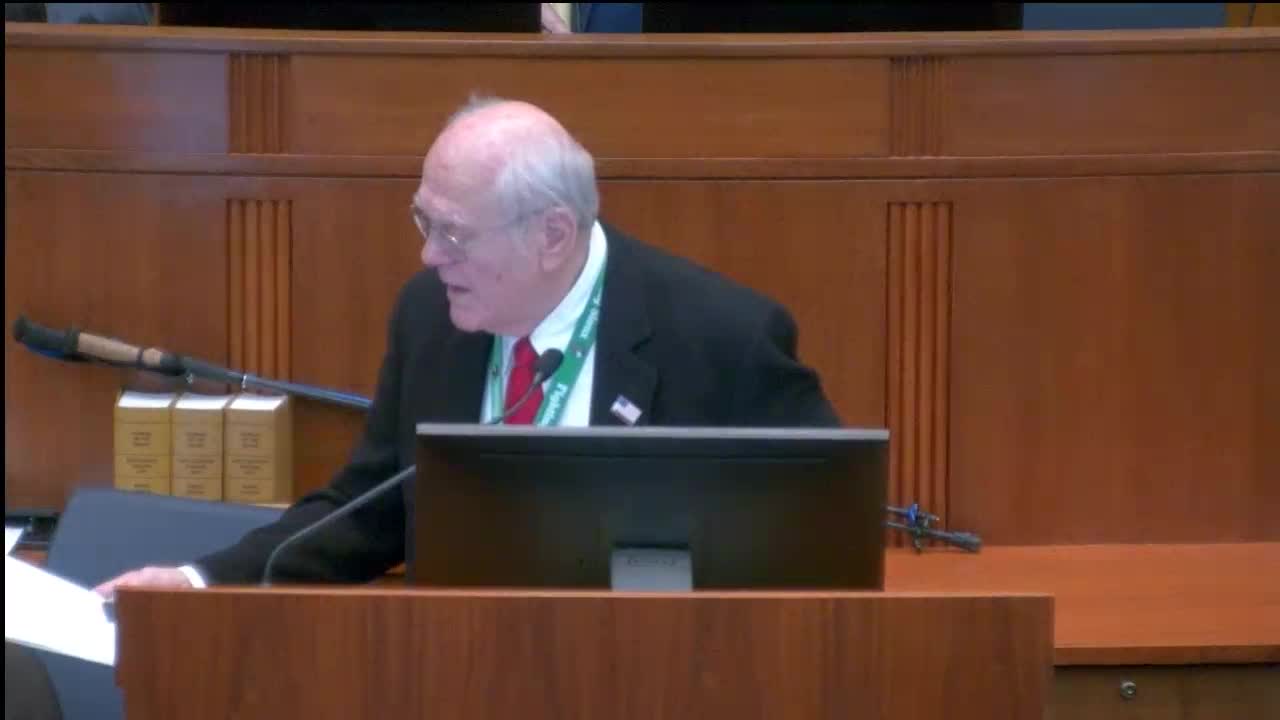House adopts resolution urging support for enhanced oil recovery and carbon-capture technology
Get AI-powered insights, summaries, and transcripts
Subscribe
Summary
The North Dakota House passed House Concurrent Resolution 3016 urging continued support for enhanced oil recovery (EOR) and carbon-capture technology, prompting debate over economic benefits and government involvement in the market.
The North Dakota House adopted House Concurrent Resolution 3016 on the floor, directing support for enhanced oil recovery methods — including projects that use captured carbon dioxide — and encouraging state and federal policies favorable to carbon-capture development.
The resolution asks state and federal governments to maintain policies that support development of carbon capture, utilization and storage, and to view captured CO2 as a commodity that can extend production in formations such as the Bakken.
Representative Hager, reading the Energy and Natural Resources Committee report, described the Bakken as a major energy source and said its output could be increased by EOR. "The Bakken formation . . . currently produces approximately 1,200,000 barrels of oil per day," Hager said, adding that EOR techniques could unlock additional recoverable resources and extend the formation's productive life.
Opponents pressed the House on the role of government in developing a market for CO2. Representative Hoverson criticized the policy approach as government-created market intervention, calling it "crony capitalism" and arguing that federal tax incentives like "45Q" mean the market is being shaped by subsidies rather than private demand. "This is not a business friendly free market . . . it's corporate welfare," Hoverson said.
Supporters responded that the technology is proven in other jurisdictions and can revive older fields. Representative Nelson noted that CO2 EOR has been used in neighboring jurisdictions for years and said the resolution focuses on using CO2 in energy production rather than permanent sequestration. Representative Jay Olson, citing visits to Canadian projects, said the technology "works" and credited EOR with extending the life of conventional fields.
The resolution passed on the floor and was declared adopted. The measure is a nonbinding expression of the House's position and does not itself enact regulatory changes or appropriate funds.
The debate highlighted a split between members emphasizing immediate economic benefits for the state's energy sector and those warning that state endorsement risks promoting a government-created market supported by federal incentives.
